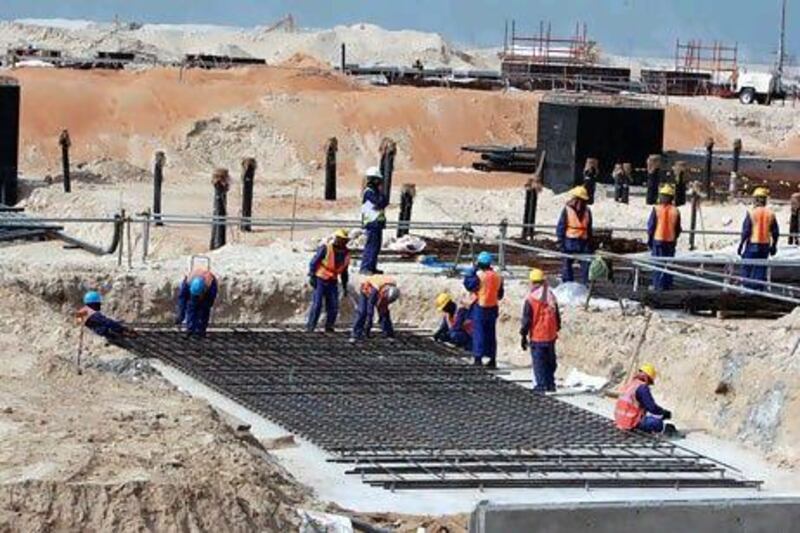Building the world's largest aluminium smelter in the searing heat of the UAE desert was, needless to say, not short on workplace safety issues.
But for Emirates Aluminium (Emal), the challenge of devising a system to oversee the health of 19,000 construction workers was at the top of the company's list.
Emal managed to design procedures so effective it avoided a single "loss-time incident", which is an injury serious enough that the victim cannot work for a day or more, during 16 million man-hours of construction in phase one of the project.
And there were just eight loss-time incidents throughout the whole of the first phase, which totaled 90 million man-hours.
Many who worked on the project were not familiar with the concept of health and safety when they first arrived on site. Yet, the biggest challenge Emal faced was one shared by many companies: contractors.
When construction of phase one at Emal began in late 2009, companies often brought anyone who was available at the time, says Emal's vice president of projects, Yousuf Abdulla Al Bastaki.
"People who came to the site didn't even know how to wear safety shoes," he adds.
Many of these contractors came on a short-term basis, so the question became, "How do you change the behaviour of somebody if they are only with you for a short period of time?," says Johan van der Westhuyzen, the regional leader at DuPont Sustainable Solutions.
DuPont gave Emal a safety award last year for performance improvement.
Emal managed to educate its workers and ensure their safety through inspections, emergency drills and risk assessments, among other steps. But not all of the procedures were this formal.
Every morning a supervisor would start the day with something called toolbox talk for their team. "He picks up one subject of safety issues, which relate to that specific job, and he talks to people and says, 'What do you do in case you do this? How do you handle this sort of job?,'" says Mr Al Bastaki.
Emal's top officials visited the site regularly to speak about the importance of health and safety. And they selected a regular "contractor of the month" as a good example to the remaining workforce.
The reporting of near misses - anything workers perceive as a risk - was encouraged. People who reported more near misses received a reward. Workers who followed the safety rules were also recognised, with a gift such as a telephone card.
These measures, and more, helped Emal win the DuPont Safety Award.
There are fewer workplace accidents in the Gulf these days but they are still too common, says Mr van der Westhuyzen.
In some cases, accidents occur through inexperience. In others, incidents arise due to extreme temperatures.
"The type of accidents are still very much related to people not following procedures, people not using the right tools for the job, people not wearing the right protective equipment," he says.
This is particularly concerning given there are so many people involved in the construction industry here. However, companies are starting to pay more attention to health and safety, says Mr van der Westhuyzen.
"Currently what we see in this region is an increase in effort and awareness, specifically around technical risks, process safety risks," he adds.
twitter: Follow and share our breaking business news. Follow us
iPad users can follow our twitterfeed via Flipboard - just search for Ind_Insights on the app.






